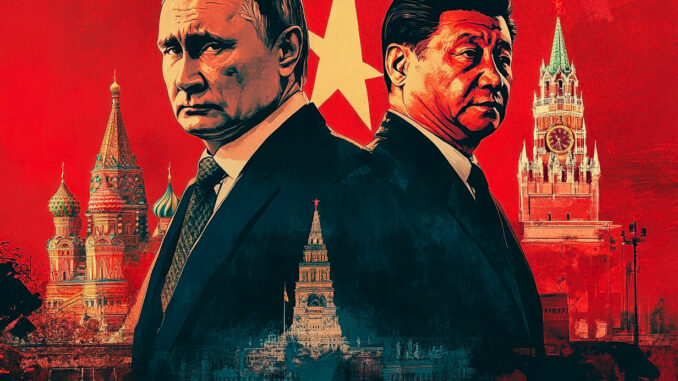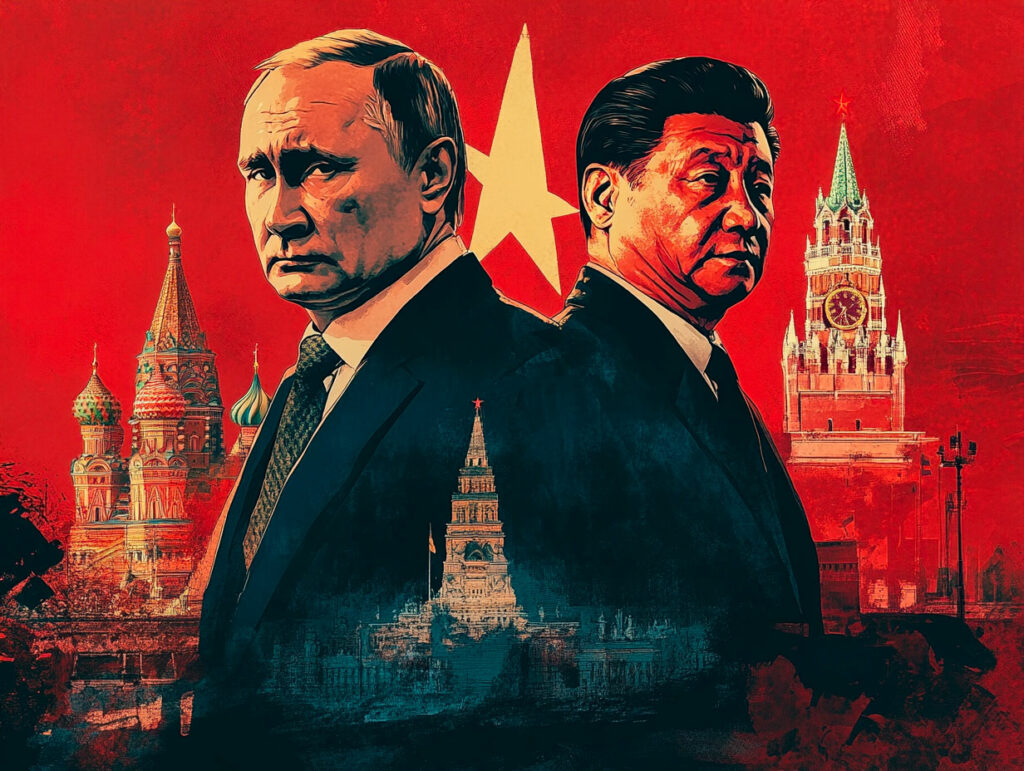
Analysis of corruption in China and Russia, its impact on the economy and efforts to tackle it. Detailed explanations of the historical consequences.
Corruption in China and Russia has deep roots, influencing their economic and political development for centuries. While both countries have sometimes been able to take advantage of corruption to boost their economies, they continue to suffer from its devastating effects. In a context where Europe and the United States have been more successful in limiting this scourge, Russia and China are struggling to control the practice, despite official rhetoric. The complex history of these two nations, marked by wars, revolutions and territorial expansion, has shaped their approach to corruption. Today, China and Russia are trying to deal with the consequences of their past while striving to improve their governance.
The historical roots of corruption in Russia and China
Corruption in Russia and China has its roots in centuries of monarchies and authoritarian governments, which often used corrupt practices to reinforce their control. In Russia, this trend dates back to the creation of the Russian state by Prince Rurik in Novgorod in 862. Russia’s territorial expansion, interrupted by Mongol invasions in the 13th century, finally reached its apogee in the 18th century with the colonization of Siberia and expansion as far as the Pacific. During this period, corrupt officials played a key role in extorting wealth from new entrepreneurs, stunting economic development.
In China, the empire saw periods of centralization and political division, with dynasties regularly fighting corruption without lasting success. The role of corruption in Chinese political culture is perceived as ambivalent, sometimes as a tool to speed up business, particularly in periods when central power was losing its influence. This has hampered economic reform and reinforced a culture of connivance.
Corruption has enabled some to get rich quickly, but it has also hindered the development of infrastructure and the smooth running of public institutions. For example, Inner Mongolia and Manchuria, two Chinese regions traditionally rich in natural resources, suffered from endemic corruption in the 20th century, hampering their potential for industrial development.
Corruption and modern economic impact
In the 21st century, corruption in Russia and China continues to play a key role in slowing economic growth. In Russia, after the collapse of the Soviet Union in 1991, economic openness gave rise to a new wave of massive corruption. The post-Soviet era was marked by the rise of the oligarchs, businessmen who often used corruption to gain access to public resources and dominate key sectors of the economy, such as oil and gas. This corruption led to massive economic losses and capital flight, with around 40 billion euros leaving Russia each year in the early 2000s due to economic instability and fraudulent practices.
In China, although the country has experienced spectacular growth since the economic reforms of the 1980s, corruption remains a systemic problem. The Chinese Communist Party has often recognized corruption as a major problem and launched several anti-corruption campaigns. Between 2013 and 2020, over 1.5 million officials were punished for corruption. However, these efforts are often criticized for their lack of transparency and their use as a means of purging political opponents rather than deeply reforming the system.
Corruption has a huge cost for the Chinese economy. In 2021, corruption was responsible for almost 1.5% of China’s GDP, or around 200 billion euros, due to the inefficiencies and unproductive investments generated by these practices. This phenomenon hampers the innovation and competitiveness of Chinese companies, particularly in key technology sectors such as telecommunications and renewable energies, where contracts are often awarded on the basis of political connections rather than performance.

The difference with Europe and the USA
Europe and the United States have historically been more effective at reducing corruption, largely thanks to strong democratic institutions and transparency in public affairs. Western European countries established rigorous systems of oversight and regulation from the Renaissance and Industrial Revolution onwards, helping to reduce corrupt practices and foster economic growth.
In the United States, the fight against corruption gained momentum with political reforms in the late 19th and early 20th centuries, putting an end to common practices of political patronage and abuse of power. Today, corruption accounts for around 0.5% of US GDP, a much smaller economic impact than in Russia or China. Mechanisms such as the Foreign Corrupt Practices Act (FCPA), adopted in 1977, make it possible to prosecute American or foreign companies accused of corruption on an international scale.
This difference in the way corruption is handled means that American and European companies are better able to innovate and grow. More transparent and competitive markets attract foreign investment. By 2022, the USA and Europe alone accounted for over 60% of global GDP, while Russia and China, despite their size, are struggling to maintain sustainable growth due to persistent corruption.
The geopolitical consequences of corruption in Russia and China
Beyond its economic impact, corruption in Russia and China also has geopolitical consequences. Systemic corruption in Russian institutions has contributed to costly political decisions, such as the wars in Chechnya, Georgia and, more recently, Ukraine. These conflicts, in addition to causing human and material losses, have led to economic sanctions by Western countries, exacerbating Russia’s economic stagnation.
In China, corruption is undermining the country’s plans for international expansion, notably through the Belt and Road Initiative. Many infrastructure projects financed by China in Africa and Asia are criticized for their lack of transparency and suspicions of corruption. These accusations are damaging China’s international reputation and hampering its global economic ambitions.
The inability of both countries to effectively reform their corrupt institutions prevents them from achieving genuine political and economic stability. By comparison, Western democracies, despite their own challenges, manage to maintain a balance between economic growth and transparent governance, placing them in a position of global leadership.
War Wings Daily is an independant magazine.